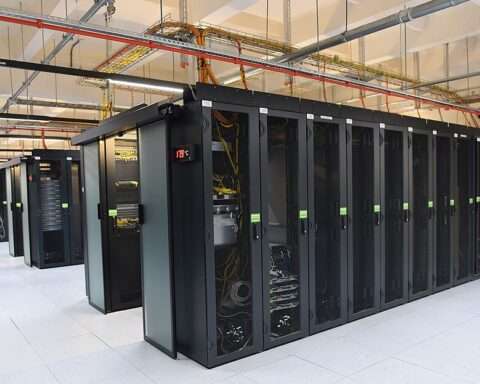Scientists are exploring how the use of artificial intelligence (AI) can enhance our understanding of the Earth’s natural systems. To that end, the National Science Foundation (NSF) is announcing $20 million in funding for projects at universities across the country to research geoscience aided by AI and machine learning.
This funding, part of the Cyberinfrastructure for Artificial Intelligence in Geosciences (CAIG) program, seeks to advance our understanding of complex Earth systems by leveraging the power of advanced technology. The program is focused on developing AI techniques tailored to geoscience challenges, improving data analysis and prediction capabilities and creating new tools that can be widely used by the scientific community.
The CAIG program is administered by the NSF’s Directorate for Geosciences, specifically through the Division of Research, Innovation, Synergies, and Education. Because of the highly collaborative nature of combining cutting-edge technology and traditional scientific research, the program is also jointly supported by other NSF divisions, including the Office of Advanced Cyberinfrastructure and the Division of Mathematical Sciences.
RELATED: Scientists using sensors, machine learning to find safe water solutions
Artificial Intelligence and machine learning are computer systems that can automatically perform tasks that typically require human intelligence. This includes learning from data, recognizing patterns, making predictions and solving complex problems.
In geoscience research, AI can help scientists analyze vast amounts of data from satellites, sensors, and historical records much more quickly and efficiently than traditional methods. It can identify subtle patterns and relationships that might be missed by human researchers, improve the accuracy of predictive models and even suggest new hypotheses for scientists to investigate.
One of the largest grants, awarded to the University of California-Irvine for $889,209, focuses on advancing wildfire science, prediction, and management using machine learning. The project aims to develop new AI models to predict fire spread more accurately and optimize the placement of fuel treatments to mitigate fire risk. By creating a large, public dataset of fire-related environmental observations, the researchers hope to improve our ability to forecast and manage these increasingly destructive events.
Another significant project, led by the University of California-Santa Cruz and awarded $898,642, is developing AI-based climate emulations to estimate changes in the Earth’s climate system. Researchers there are working on creating stable and physically consistent global atmospheric models that can perform both short-term forecasting and long-term climate modeling at a fraction of the computational cost of current physics-based models. This could dramatically improve our ability to predict extreme weather events and understand long-term climate trends.
The University of Southern California received $862,240 for PaleoPAL, an AI research assistant for paleoclimatology. This project aims to develop an AI system that incorporates prehistoric climate knowledge into existing large language models, creating a tool that can assist researchers in analyzing past data. The system will be used to investigate key paleoclimate problems, such as understanding long-term variations in El Niño patterns and detecting climate tipping points.
A collaborative project between the University of Maryland and the University of Pittsburgh, funded for $759,215, focuses on using AI to monitor global forest carbon dynamics. The researchers are developing new AI techniques to analyze high-resolution satellite imagery and improve our understanding of how forests influence the Earth’s carbon cycle. This work could provide crucial information for understanding how much carbon forests can store and how quickly that can change.
The University of Texas at El Paso and Colorado State University were awarded $778,441 for a project to develop AI techniques for analyzing seismic data from volcanoes. This research aims to automatically identify and categorize different types of seismic events associated with volcanic activity, potentially improving volcanic hazard assessment and early warning systems.
CUNY City College received $674,291 for a project combining AI with geoscientific knowledge to better understand and predict landslides. This research could have significant implications for land-use planning and disaster preparedness in landslide-prone areas.
By harnessing the power of AI, these CAIG-funded projects aim to push the boundaries of our understanding of Earth systems, from the deep ocean to the atmosphere, from prehistoric climate conditions to future scenarios.
Photo by Ása Steinarsdóttir on Unsplash













